Share

Mark Leonard's World in 30 Minutes
Divide and conquer: Trump’s class war
In this episode, Mark Leonard is joined by Adam Tooze—ECFR trustee, the Kathryn and Shelby Cullom Davis professor of history at Columbia University, director of the university’s European Institute and author—to discuss Donald Trump’s rise through a class lens. They examine how job losses and cultural divides, as well as frustration with media, tech and government elites, are driving workers’ support for Trump. These societal shifts are disrupting US politics, promoting figures like Trump and Elon Musk who some see as defying the establishment.
Tooze calls for Europe to develop a united, stronger response to these changes. With the US distracted and China ahead in manufacturing areas such as tech and automotive, Europe needs major investments in finance, industry and technology. Tooze sees less risk in US trade disputes but warns Europe must act to stay relevant. But can Europe meet this challenge?
This podcast was recorded on 17th March.
More episodes
View all episodes
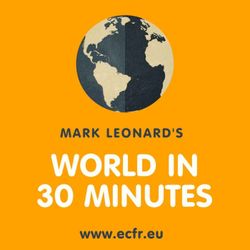
Trump’s new National Security Strategy
45:38|America has published its new National Security Strategy (NSS)—and it contains worrying rhetoric about the EU, European values and the transatlantic relationship. Russia, however, is never described as a threat or competitor. In fact, Moscow has welcomed the document as being “largely consistent with Russia’s vision”.In this week’s episode, Mark Leonard welcomes Gladden Pappin, president of the Hungarian Institute of International Affairs, co-founder and deputy editor of American Affairs journal, and co-founder of the online magazine Postliberal Order, and Majda Ruge, senior policy fellow in ECFR’s US programme and long-time observer of the American right’s foreign policy. Together, they break down what’s behind the NSS and what its real impact on Europe might be.What are the NSS’s ideological roots? How seriously should Europeans take the strategy and possible threats coming from the US? And what does the NSS mean for the future of the transatlantic relationship? Bookshelf:Reading Trump’s National Security Strategy: Europe through a distorted lens by Carl BildtIt’s time Europe got to grips with the MAGA challenge, writes Mark Leonard by Mark LeonardEuropeans can’t let Trump define what it means to be European by Pawel ZerkaThis episode was recorded on December 11th 2025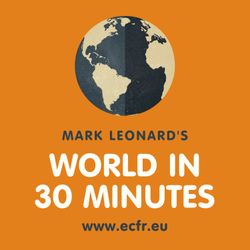
China's technological dominance
30:26|China’s rise has long fascinated policymakers, economists and technologists. But few observers have studied the country’s technological ambitions as closely as Dan Wang, research fellow at the Hoover History Lab at Stanford University and author of Breakneck: China’s Quest to Engineer the Future.This week, Mark welcomes Dan to discuss the ideas behind his book, including the dichotomy between China’s “engineering state" and the West’s “lawyerly” societies. Together, they unpack what China is getting right—and where its model is lagging.What is the Chinese government getting wrong? Is the Chinese model now coming under strain? What would it take for Europe to remain competitive in the 21st century? And how is China projecting its model across Africa and South-East Asia?Bookshelf: Breakneck: China's Quest to Engineer the Future by Dan Wang Allies at War: How the Struggles Between the Allied Powers Shaped the War and the World by Tim Bouverie This episode was recorded on November 21st 2025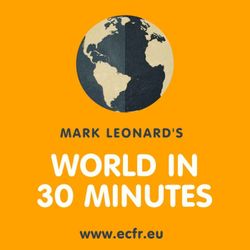
ECFR at 18: Has European foreign policy come of age?
43:14|The European Council on Foreign Relations turned 18 in November 2025. This milestone offers a unique moment to reflect on the world in which ECFR was founded—and how dramatically it has changed. In 2007, Europe had the world’s confidence: democracy seemed secure, globalisation was a force for opportunity, EU enlargement was reshaping the continent, and peace felt almost guaranteed. So how did Europe move from the hopeful 2000s to a world of power blocs and war?This week, Mark Leonard is joined by ECFR co-chairs Carl Bildt, former prime and foreign minister of Sweden, Lykke Friis, former Danish minister of climate, energy and gender equality, and Norbert Röttgen, member of the German parliament, to take stock, 18 years after ECFR began. They assess what Europe misunderstood then; what it must confront now; and what the next two decades might look like.Why did Europe need a pan-European foreign policy think-tank like ECFR in 2007? Why does it still need one today? And how has ECFR has helped shape debates and policies over the past 18 years?Bookshelf:Waves of ambition: Russia’s military build-up in Crimea and the Black SeaWhy Crimea matters European Security This podcast was recorded on November 24th 2025.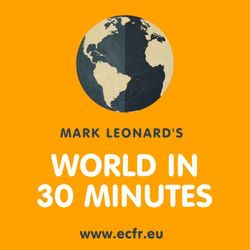
Trump's 28-point plan for Ukraine
30:37|In this emergency podcast episode, Mark Leonard welcomes Jana Kobzova, co-director of ECFR’s European Security Programme, and Jim O’Brien, former US assistant secretary of state for Europe and ECFR distinguished policy fellow, to dissect the leaked 28-point US-Russia framework for ending the Ukraine war. Kyiv has rejected the proposal as a capitulation and Europeans are insisting on a seat at the table. Together, Mark, Jana and Jim examine the feasibility of the plan’s core demands, given Ukraine’s battlefield resilience and Europe’s pushback. What does the plan reveal about the Trump administration’s approach? Can Europe shape a settlement that safeguards Ukraine’s sovereignty? Or will Ukraine be coerced into a deal on Russia’s terms? This podcast was recorded on November 21st, 2025. Bookshelf: Drunk: How We Sipped, Danced, and Stumbled Our Way to Civilization by Edward SlingerlandAlgorithms for the People by Josh Simons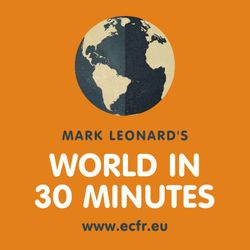
The future of European air defence
26:08|Europe’s most ambitious defence project is in deep trouble. Europe’s Future Combat Air System (FCAS), presented as the crown jewel of Franco-German cooperation, was meant to deliver a next-generation defence system ready to meet the demands of an increasingly dangerous world. Instead, the FCAS showcases diverging visions of European air power and raises questions about the continent’s strategic autonomy.This week, Mark is joined by Ulrike Franke, ECFR senior policy fellow and expert on defence, security and drones. Together, they explore why FCAS keeps running into dead ends—from persistent rifts between Dassault and Airbus to political disagreements between Paris and Berlin.What do the developments around the FCAS reveal about the strength of the Franco-German motor in the EU? What happens if the project collapses? And what would it mean for Europe’s quest for strategic autonomy?Bookshelf:Char de combat: obsolescence ou renaissance? by Léo Péria-PeignéThe ideas letter curated by Leonard BenardoThis episode was recorded on November 19th 2025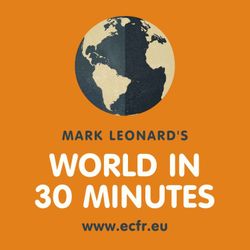
The politics of migration and integration
28:32|Across Europe, immigration and integration have become pressing political issues. The far right is surging in national polls, and debates over borders and national identity are reshaping party systems and public life.This week, Mark Leonard is joined by Sunder Katwala, director of the think-tank British Future and author of How to Be a Patriot, and Lawen Redar, spokesperson for integration for the Swedish Social Democratic party and a member of Sweden’s parliament. Together, they discuss how Sweden shifted from the EU’s most liberal migration country to tighter border controls, how parallel societies are emerging, and how both Sweden and Britain are struggling to define who “we” are in increasingly diverse societies.How can European societies combine stricter border policies with fair and effective integration? Can social democrats rebuild a shared narrative of national belonging without slipping into ethno-nationalism? And how can Europe avoid importing the most negative elements of America’s culture war?Bookshelf:How to Be a Patriot: Why love of country can end our very British culture war by Sunder KatwalaWhy Immigration Policy Is Hard: And How to Make It Better by Alan ManningHead, Hand, Heart: Why Intelligence Is Over-Rewarded, Manual Workers Matter, and Caregivers Deserve More Respect by David GoodhartThis episode was recorded on November 14th 2025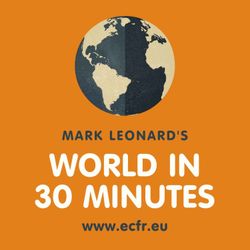
Russia’s hybrid war in Africa
32:16|In recent years, military juntas have replaced democratically elected governments in Burkina Faso, Mali and Niger. These have expelled European forces and welcomed Russian mercenaries—yet stability in these countries remains elusive.This week, Mark is joined by Will Brown, senior policy fellow in ECFR’s Africa programme and author of the recent policy brief “The Bear and the Bot Farm: Countering Russian Hybrid Warfare in Africa”, and Beverly Ochieng, senior analyst at global risk consultancy Control Risks. Together, they unpack Russia’s ambitions in Africa and the shifting geopolitical landscape across the Sahel.How does Moscow’s vast propaganda machine continue to shape public opinion in the region? How is the Kremlin using disinformation to expand its influence? And what options remain for Europe in a region where its power is fast fading?Bookshelf:The Bear and the Bot Farm: Countering Russian Hybrid Warfare in Africa by Will BrownThe Lumumba Plot: The Secret History of the CIA and a Cold War Assassination by Stuart A. ReidAttack on Titan (TV Series 2013–2023)Beyond the Door of No Return by David DiopThe Strong Brown God: The Story of the Niger River by Sanche de GramontThis episode was recorded on November 5th 2025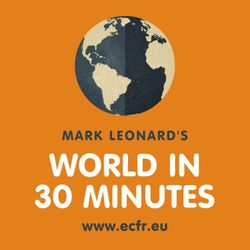
Venezuela and Trump’s hemispheric defence agenda
22:02|This week, Mark Leonard returns to the World in 30 Minutes to unpack the latest development in US foreign policy: America’s military buildup off the coast of Venezuela. The US has deployed troops in the Caribbean and an aircraft strike group has joined the operation—but the Trump administration’s aims in the region remain unclear.Mark is joined by Jeremy Shapiro, ECFR’s research director and head of its Washington office, to discuss the legal and political justifications for the strikes, the influence of Marco Rubio, and how Trump’s “hemispheric defence” doctrine fits into his unpredictable foreign policy. Is the development about drug cartels, regime change—or is America reasserting its power in the Western hemisphere? What are the implications for Europe? And what do these strikes mean for the future of US global strategy?Bookshelf: The Undiscovered Country: Triumph, Tragedy, and the Shaping of the American West by Paul Andrew HuttonThis episode was recorded on October 28th 2025.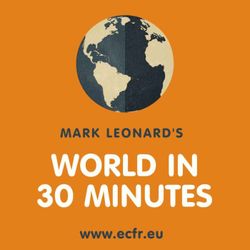
Ukraine, Russia and Trump’s sanctions gamble
30:51|Donald Trump’s efforts to broker peace between Russia and Ukraine have largely taken a backseat to events in Gaza. But a recent call with Vladimir Putin, followed by a tense meeting with Volodymyr Zelensky, has reignited America’s engagement. Washington has announced new sanctions against two Russian oil giants, Rosneft and Lukoil, just as European leaders advance plans to tap frozen Russian assets.This week, Jeremy Shapiro, ECFR research director and head of its Washington office, is joined by Jana Kobzova, co-director of ECFR’s European Security programme and former foreign policy adviser to Slovak president Zuzana Čaputová, and Jim O’Brien, former assistant secretary of state for European and Eurasian affairs in the Biden administration and an ECFR distinguished visiting fellow. Together, they unpack Trump’s sanctions gamble, Europe’s shifting strategy on Russian energy—and whether these moves could alter the course of the war.Bookshelf section: The Tech Coup: How to Save Democracy from Silicon Valley by Marietje SchaakeThis episode was recorded on October 23rd 2025.